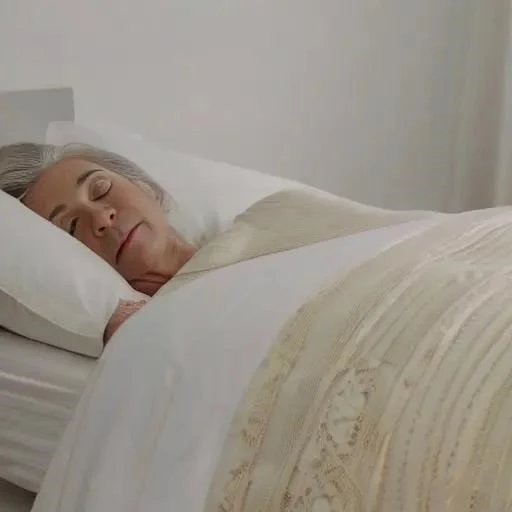
Unlock Your Peak Potential: The Revolutionary Truth About Recommended Sleep By Age You Can’t Afford to Ignore!
In an increasingly demanding world‚ where the relentless pursuit of productivity often overshadows fundamental human needs‚ the profound importance of sleep is finally gaining the recognition it undeniably deserves. Far from being a mere passive state of rest‚ sleep is a remarkably active process‚ critically underpinning our physical health‚ mental acuity‚ and emotional well-being. Emerging research‚ bolstered by decades of study‚ consistently reveals that optimal sleep isn’t a one-size-fits-all proposition; rather‚ it’s a dynamic requirement‚ meticulously tailored to our specific stage of life.
For years‚ the question of “how much sleep do I truly need?” seemed to invite a new‚ often conflicting‚ answer every season. However‚ leading authorities like the National Sleep Foundation and the American Academy of Sleep Medicine have meticulously synthesized vast amounts of data‚ providing comprehensive‚ age-specific guidelines. These expert-backed recommendations‚ meticulously refined over time‚ offer a crucial roadmap‚ guiding individuals from infancy through their golden years toward more restorative and health-promoting sleep patterns. Understanding these evolving needs is not just beneficial; it is absolutely essential for fostering lifelong vitality and resilience‚ fundamentally shaping our capacity to thrive in every aspect of life.
| Age Group | Recommended Daily Sleep (Including Naps) | Key Developmental Impact |
|---|---|---|
| Newborns (0-3 months) | 14-17 hours | Rapid brain development‚ foundational growth‚ immune system strengthening. |
| Infants (4-12 months) | 12-16 hours | Cognitive processing‚ memory consolidation‚ motor skill development. |
| Toddlers (1-2 years) | 11-14 hours | Language acquisition‚ emotional regulation‚ physical coordination. |
| Preschoolers (3-5 years) | 10-13 hours | Learning‚ creativity‚ social-emotional skill building‚ energy restoration. |
| School-Age Children (6-12 years) | 9-12 hours | Academic performance‚ attention span‚ mood stability‚ physical health. |
| Teenagers (13-18 years) | 8-10 hours | Hormonal changes‚ emotional processing‚ critical thinking‚ growth spurts. |
| Young Adults & Adults (18-64 years) | 7-9 hours | Cognitive function‚ stress management‚ productivity‚ cardiovascular health. |
| Older Adults (65+ years) | 7-8 hours | Memory retention‚ immune response‚ fall prevention‚ overall quality of life. |
| For more detailed information and personalized advice‚ visit: SleepFoundation.org | ||
Consider the formative years‚ for instance‚ where sleep acts as an incredibly powerful architect of development. Newborns‚ requiring an astonishing 14 to 17 hours daily‚ are actively building neural pathways‚ solidifying memories‚ and bolstering their nascent immune systems while slumbering peacefully. As children grow into their toddler and preschool stages‚ needing 10 to 14 hours‚ including crucial naps‚ sleep profoundly influences their capacity for language acquisition‚ emotional regulation‚ and the development of essential motor skills. Neglecting these vital hours‚ however‚ carries significant long-term health risks‚ impacting everything from mood and behavior to academic performance‚ as highlighted by Dr. M. Hirshkowitz’s seminal 2015 research‚ cited by thousands.
The transition into adolescence and young adulthood presents its own unique set of sleep challenges‚ often complicated by demanding academic schedules‚ burgeoning social lives‚ and the pervasive glow of digital screens. Teenagers‚ ideally needing 8 to 10 hours‚ frequently fall short‚ leading to concerning rates of fatigue‚ irritability‚ and impaired cognitive function. This widespread sleep deprivation‚ unfortunately‚ isn’t merely an inconvenience; it can significantly compromise academic achievement‚ increase accident risk‚ and exacerbate mental health issues‚ including anxiety and depression. Understanding these heightened needs is crucial for parents and educators‚ enabling them to foster environments conducive to healthy sleep habits‚ ultimately empowering young individuals to navigate these complex years with greater clarity and resilience.
As we journey into adulthood and beyond‚ the recommended sleep duration subtly shifts‚ settling into a range of 7 to 9 hours for young adults and adults‚ and 7 to 8 hours for older adults. While the quantity may slightly decrease‚ the quality and consistency remain paramount. Adequate sleep during these stages is undeniably linked to improved cardiovascular health‚ enhanced metabolic function‚ and robust immune responses‚ acting as a preventative shield against chronic diseases. Moreover‚ for older adults‚ consistent‚ restorative sleep is a powerful ally in maintaining cognitive sharpness‚ preserving memory‚ and significantly reducing the risk of falls‚ thereby extending their independence and enriching their overall quality of life. It’s an investment that pays dividends in every waking moment‚ profoundly impacting daily performance and long-term vitality.
Looking ahead‚ the future of sleep science promises even greater personalization and precision. By integrating insights from cutting-edge AI and wearable technologies‚ we are moving towards a paradigm where individual sleep patterns‚ genetic predispositions‚ and lifestyle factors can be analyzed to provide hyper-tailored recommendations. This exciting evolution‚ driven by relentless innovation and a deeper understanding of chronobiology‚ will empower individuals to optimize their sleep with unprecedented accuracy‚ transforming it from a neglected necessity into a strategically managed pillar of health. Imagine a world where your smart device not only tracks your sleep but also offers real-time‚ personalized interventions‚ ensuring you consistently achieve your ideal restorative state.
